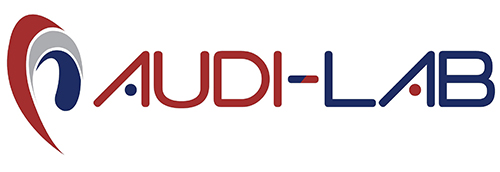Comprehensive Hearing Aid Rehabilitation, , Dublin
The Best Aftercare And Rehabilitation
Hearing Aids Rehabilitation, Because Hearing Devices Are Just The Beginning
Hearing aids are just the start of your journey to hearing better, the best hearing aid in the world won't help unless it is fitted correctly and verified on an ongoing basis. We understand this clearly and it has shaped our thinking on many facets of our Practise. From the equipment we use, through our testing and fitting processes to the Patient Journey we offer. This is why we have invested so heavily in state of the art equipment in order that we can deliver a premium experience and the results you expect. This is why we believe that the journey to hearing better is an ongoing one that needs true support and aftercare.
Auditory Rehabilitation
Audiological (hearing) rehabilitation (also known as auditory or audiological rehab) is the process of providing training and treatment to improve hearing for those who are hearing impaired. Hearing rehabilitation services focus on help you to adjust to hearing loss, making the best use of hearing aids, exploring assistive devices, managing conversations, and taking charge of communication. We also use a form of auditory sound rehabilitation called LACE which will help re-train your auditory system. Topics that we typically discuss with you include the following:
Nature of your hearing loss
It is important to understand the specific nature of your hearing loss. Sometimes it takes several discussions with us and your family for things to “click.” By better understanding your hearing loss, you will gain new insights into:
Why it seems that people are mumbling
Why you “hear” but cannot “understand”
Why you have trouble with female voices
Other questions that may have been troubling you for so long
Your family's understanding of your hearing loss
Your family does not know how you hear. What they do know is that you do not hear well! They know they use lots of energy trying to communicate with you. We can help them understand by playing a recording that simulates your individual hearing loss so that your family can understand better what you are experiencing.
The hearing aid
What will the hearing aid do, and what will it not do? When people have realistic expectations, it is easier to adjust to the hearing aid. We will also review how to take care of your hearing aid, explain how to troubleshoot problems, and answer any questions that you have. So much information is given to you at the time of the hearing aid fitting that it is difficult to absorb everything, that is why a course of ongoing rehabilitation visits is so important. Also, more questions will come to mind after the hearing aid has been used for some time.
We sometimes take this opportunity to review different types of hearing aids and how they work. This helps us to explain in more detail why the specific style of hearing aid was recommended by us. This review may also helps family members understand that the hearing aid was a specialised prescription. Often, well-meaning family members and friends mention ads for other kinds of hearing aids or talk about other friends who have “better” hearing aids. They simply do not understand that the hearing aid was chosen because it best addressed the hearing loss.
In addition, hearing rehabilitation services will often cover the following topics:
Managing hearing aids and hearing assistive devices
A hearing aid or hearing assistive device is effective only when properly used. Issues that must be covered include proper positioning/wearing of the device, adjustment of controls, and use of any special features.
Using your eyes to get clues about what others are saying
For people with hearing loss, this visual information is even more important to make up for what they cannot hear. This involves more than lipreading. Visible cues include the speaker's facial expression, body language, and the context and environment in which the communication is taking place. All of these factors provide meaning and help to make conversations easier to understand and enjoy.
Managing communication
The focus here is to help those with a hearing loss understand their hearing loss and develop skills to improve communication when listening becomes difficult. Some situations that pose a problem for people with hearing loss include understanding speech in background noise, when they cannot see the speaker’s face, or when the sound or speech is soft or distant.
We can help teach ways to improve communication in these difficult listening situations. Examples include: Dealing with background noise outside the home. In a noisy restaurant, for example, request a table away from the kitchen and clattering dishes. Seat yourself directly in front of your dining companion. Choose quiet times to dine out, and choose restaurants with linen table cloths, carpeting, and drapery; these improve the room’s acoustics and decrease reverberation.
Handling conversation
By learning to take charge of your communication assertively (not aggressively!), you can become a more effective communicator. There are many ways to be assertive. You can ask people to get your attention before speaking to you, suggest that they face you, and ask them not to shout. Another way to be assertive is to learn to use strategies for handling communication breakdowns. You must know when to ask for a “rephrase” instead of a “repeat,” know how to apply a clarification strategy, and learn how to ask questions.
Hearing assistive devices.
A hearing aid won't wake you up when you are sleeping. A hearing aid may not help you in a theatre or when you are far away from the sound source. But there are many other devices that can help, such as TV listening devices, personal FM systems to use in lectures, conference microphones, and telephone amplifiers. You can become acquainted with these devices and see how they can improve your social, family, and work life.
